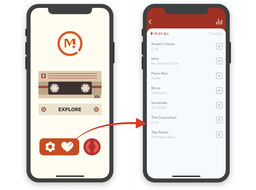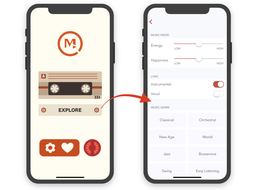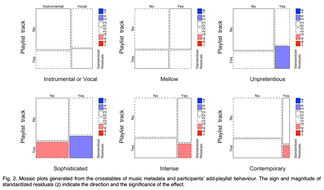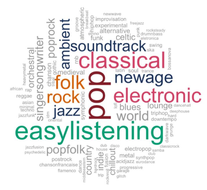Background Music for Studying: A Naturalistic Study
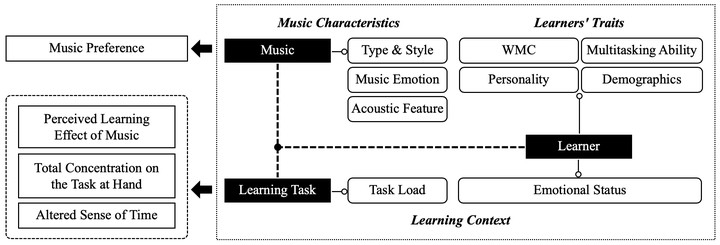 Conceptual framework
Conceptual frameworkAutomated background music (BM) selection for studying has been difficult in that, the BM should not only foster positive learning experience (e.g., engagement) but also avoid impairing cognitive processing (e.g., distraction). This long-standing question is linked to existing theories that support each claim. For example, the mood-arousal hypothesis argues that BM can benefit learning through modulating learners’ emotion while the cognitive load theory explains that BM might be distracting for creating redundant information.
Through incorporating HCMIR methods and theoretical insights from existing lab-based BM studies, we conducted naturalistic user experiments to understand how students perceive the effects of BM when performing their everyday learning tasks with BM being played by a novel mobile music app (Moody).
Highlights:
- The availability of a self-developed Moody music app enables both music listening behavior tracking and experience sampling, allowing us to go beyond laboratory experiments that dominated existing BM studies and achieve a higher level of ecological validity.
- This study also leverages audio processing techniques developed in the field of music information retrieval to extract fine-grained music features. Despite being under-represented in the existing BM studies, the extracted timbral features (e.g., brightness, white noisiness) were found to link to perceived engagement in certain (but not all) conditions.
- Correlations between learning experience and BM characteristics (e.g., loudness, tempo, timbre) emerged when participants’ task load or cognitive capacity (e.g., working memory capacity, multitasking ability) was considered.
- Findings provide support for and enriched the classic theoretical hypotheses in the literature (i.e., arousal-mood hypothesis, irrelevant sound effect) and suggest links to the challenge-skill balance hypothesis in the flow theory.
Gallery:
